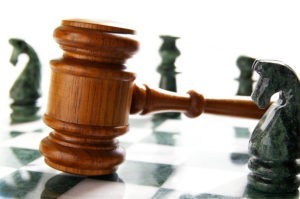Introduction
A bounced or bad check, also called an NSF (non-sufficient funds) check, is a common issue for both business owners and debt collectors.
While most people assume checks only bounce when the writer doesn’t have enough money in their bank account to cover the amount, there are actually a few reasons why a check might bounce:
- Insufficient funds
- Closed bank account
- Stop payment
- The check is too old for the bank to honor
- The check was improperly written
It’s no surprise that the person who wrote the bad check will be charged a fee, but did you know that the person on the receiving end of a bad check can also get hit with a fee?
That’s right — anyone attempting to cash a bounced check is also subject to returned-check fees, which can range from $20 to $40, or even a percentage of the check amount.
So your customer wrote you a bad check — now what?
Once you discover the check has bounced, you need to act quickly and follow the steps below to recover your payment and avoid paying more fees.
Check the laws in your state.
When a customer provides you with a bad check, they also provide you with a very easy and valuable means of establishing the obligation as well as the opportunity to recover significantly more than the amount of the check.
Most states’ statutes provide that treble damages (3x the amount of the check) plus the amount of the check can be recovered from the maker should the maker or drawer fail to pay the amount owing to the payee within 30 days following a prescribed written demand for the amount of the check.
When a customer commits a wrongful act, like knowingly writing a bad check, the court can award treble damages based on the intent of the defendant.
Additionally, by most state’s statutes, a creditor can recover costs of suit as well as reasonable attorney’s fees.
These laws vary by state, so be sure to check the laws where you live and follow the requirements of the statute.
Contact the customer right away.
People make mistakes — don’t assume the customer knowingly wrote you a bad check. Inform them that their check has bounced and see if they can use an alternative payment method, like a money order.
Most checks have the person’s name, address and phone number on them, so it should be relatively easy to contact the check writer.

However, sometimes people can be hard to locate, especially if they knowingly wrote you a bad check.
If the check writer has relocated or won’t respond, you may need to recruit the help of a skip tracer or a collection agency with a skip tracing department to track them down.
Visit the bank listed on the check.
If possible, in addition to contacting the customer right away, you may also want to visit the bank branch listed on the check.
The bank may cooperate and agree to cash the check even if the check writer’s account can’t cover the funds and they’ve disappeared.
Another benefit of visiting the bank in person is avoiding bad check fees. That’s right — the person receiving the bad check can get hit with fees too.
However, it is at the bank’s discretion to honor the check or not. If visiting the bank leads you nowhere, it may be time to enlist some help.
Seek help from a collection agency.
A collection agency would be able to contact the customer on your behalf to collect the payment, advise you on the next steps, and provide litigation assistance for a small fee.
In the case of a missing customer, the agency’s skip tracing department could also help track down the bad check writer.
Most collection agencies have skip tracers, who use a variety of resources to locate people who have “skipped” town:
- Credit Reports
- Public Records Databases
- Loan Applications
- Criminal Background Checks
- Job Applications
- Courthouse Records
- Utility Bills
When the customer has been located, the collection agency can also contact them on your behalf to collect payment or litigate, if necessary.
Conclusion
Even if you take precautions like background checks to watch out for nonpaying customers, NSF checks don’t typically show up on credit reports.
However, according to Experian, they may still show up as part of a debit report, which companies use for opening checking accounts, issuing debit cards and setting ATM withdrawal limits.
So if you happen to receive a bad check, it’s important to take the right steps to get your money back.
This information is provided as a matter of information and education only. It is not intended to provide legal advice or counsel. Do not take action in specific cases without full knowledge of the facts, and competent legal advice from your attorney.




